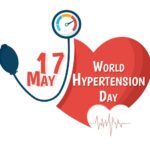Even one of the largest representative body for physicians, the WMA, is in opposition of the NMC Bill
New Delhi, January 31st, 2018 : Recently, the World Medical Association (WMA) came out in strong criticism of the Indian government’s plan to dismantle the professional self-governance of Indian physicians. The Association, in a letter to the Chairman of India’s Parliamentary Standing Committee on Health and Family Welfare, has warned that replacing the Medical Council of India (MCI) with the NMC Bill would lead to more Indian doctors leaving the country, affecting patient care.
The letter goes on to say that there is no evidence that the regulation of a profession is better done by the government. There have been various viewpoints on the decision to replace the MCI with the NMC Bill. However, what stands true is the fact that there have been no specific complaints of corruption of any type and magnitude on part of the MCI. The Council has also been denied the mandatory opportunity of hearing, which the principles of natural justice guarantee.
Speaking about this, Padma Shri Awardee Dr K K Aggarwal, President Heart Care Foundation of India (HCFI) and Immediate Past National President Indian Medical Association (IMA), said, “The WMA is an international and independent confederation of free professional medical associations, and represents physicians worldwide. The very fact that such a large Association is opposed to the idea of handing over the regulatory powers to the hands of the government and supports the MCI is enough to indicate what the actual scenario is. There has been no quantifiable evidence whatsoever of corruption within the MCI, pointing to the need to revisit the idea of replacing the body with a draconian act that will take away professional autonomy from doctors.”
Professional self-governance facilitates professional autonomy and clinical independence. A shift from a democratically elected, autonomously governed body to a politically established and government directed body would be counterproductive for patients and for furthering the development of the medical profession in India.
Adding further, Dr Aggarwal, who is also Vice President of the Confederation of Medical Associations in Asia and Oceania, said, “Even in the presence of a full-time administrator appointed by the Delhi High Court to supervise the MCI’s functioning for a year, there was not a single event pertaining to the functioning of the Council, which could be said to be contrary to the governing rules. Where then does the question of corruption arise? The MCI has been instrumental in bringing out regulations for the benefit of the medical fraternity and students, an example of which is the NEET. It is, therefore, blatant injustice to make it inconvenient and difficult for Indian physicians to survive and practice in their home country by introducing such acts.”
One of the main contentions for replacing the bill was to get a new corruption-free mechanism but the NMC has the potential to breed corruption. The proposed NMC is not representative of the medical profession in India. The MCI has one representative each from state and practicing doctors. With this being taken away, it remains to be seen how the ethics of practicing doctors providing care to 80% of the population can be managed without having representatives from their own tribe.







